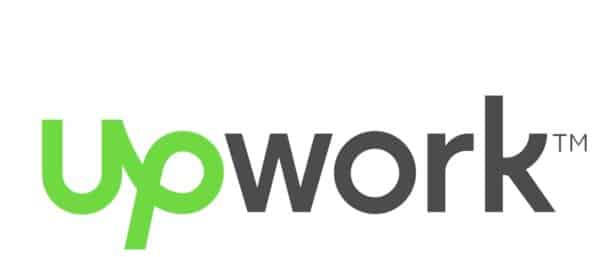
Are you ready to expand your business and want to register as a freelancer? If yes, here is a detailed guide about registration and all requirements for working as a freelancer.
If you’ve recently shifted from your regular day job to freelancing, thinking that you’re a free man (or woman) now, we’re here to burst that bubble.
The legal aspects of freelancing may make you uneasy, but don’t worry; you’re not alone. Most beginners are in the same boat.
While freelancing does free you of the employee status under which you have to follow an absolute superior’s commands, it doesn’t wholly detach you from the legal framework.
Previously, you were working as a part of someone else’s business. But now, you have to make the moves yourself. Here’s the first question that pops up in anyone’s mind: how do you register as a freelancer?
No, it’s not as easy as setting up a Fiverr or Toptal account. A little more goes into getting your freelance business legally compliant. Let’s discuss freelance business registration and all aspects surrounding it.
Business Structure
The first thing on your checklist should be to choose the right business structure for yourself. Mostly, an S corporation or sole proprietorship is the best choice for freelancers.
If the legal jargon on the government’s website is too much for you, worry not. We’ve discussed the different business structures in layman’s terms below.
Sole Proprietorship
As a sole proprietor, you’re the business owner and its dealings, including the profits, losses, and lawsuits.

As per legal guidelines, you’re not separate from your business as an individual, and the same principle applies to taxes.
For sole proprietorship, you may need some permits and licenses, as indicated by the government.
Pros
- Simple and cheap business framework
- It gives you full control of your business.
- Similar tax return for you and the business
Cons
- You’re liable for your business activities
- Responsibility for failure and success
- Harder to raise or borrow money for your business
Limited Liability Corporations
To register your business as an LLC, you have to meet several of the state’s requirements. While sole proprietorship does not differentiate between you and your business, personal assets are protected when an LLC faces bankruptcy.
Similarly, a lawsuit affecting your freelancing business will do you no harm personally.
Also, the business’s finances – profits or losses – go toward your personal tax return. Thus, you can dodge corporate taxes.
Pros
- Limited liability protection for personal assets
- Changeable federal tax classification
Cons
- Expensive
- There’s a limit to liability protection
S Corporation
To be an S corp, you must be an existing entity, such as an LLC. One of the main benefits of being an S corp is tax savings. Since the business’s profits and losses are counted in personal tax returns, you don’t have to pay taxes on the business itself.
Pros
- Tax savings
- Limited liability protection
Cons
- Most expensive
- Strict rules
How to Choose the Right Business Framework?
When laying the groundwork for your freelance business registration, the hardest part is choosing the business framework.
We can understand – it’s hard, especially if this is the first time you hear these terms.

Before you make a decision, you need to consider a few things. Don’t act on impulse or select the business framework that your freelancer buddy has. Every freelancer is different based on their field of work, income, and legal compliance.
Here are a few questions to help you get started;
- How likely are you to get sued?
- How much do you earn from freelancing?
- Where do you see yourself in a few years financially?
Depending on your standing in the freelancing business, you can select the right business framework for yourself. If you’re lost, get help from free local resources. Most states offer free consultations from experts who can help you register as a freelancer.
See Related: How to Get Paid to Make Excel Spreadsheets
Calculate the Risk
Determining the likelihood that your business is at risk is a great way to start when choosing a business structure.
If you’re running a high-risk business, it’s best to register as an LLC because you’ll be a separate entity from your business. In contrast, if your business is risk-free, a sole proprietorship is the way to go.
For instance, if you work as a writer or a photographer, your work is relatively risk-free. A client won’t sue you for anything, so there’s no reason to spend extra filing and consultation money to set up an LLC.

On the contrary, if you’re a freelance baker or masseuse, a client may sue you for quality control or personal transgression. Consider two scenarios here:
- As a sole proprietor, you’ll be liable to pay the legal bills yourself, and your personal assets can be seized.
- As an LLC, your personal assets are separate from the business. Thus, you won’t have to worry about ending up in a personal financial crisis.
Make sure you keep your financial paperwork organized, as you’ll likely need to show proof of financial statements in case of an audit.
Cost of Filing
When you register as a freelancer, you should not spend half your savings on it. The filing fees can be up to $200, but that’s not the most financially exhausting part.
Whichever business structure you choose, you’ll have to get professional legal advice – unless you’re aware of the state rules and regulations.
Since legal advice is expensive, your registration bill can pile up as you go up the business structure hierarchy.
See Related: How to List Freelance Work on LinkedIn
In the Long Run
Along with cost and risk, you also have to consider your business’s future. Are you just freelancing part-time to pay your student loans? Do you plan to make it a full-time business? Will you always work alone to take up partners?
All these things impact your choice of the right business framework. Remember that if you’re doing it temporarily, there’s no need to form an LLC.
Apart from costing you filing charges, it will also create a hefty sum in legal advice that you won’t even use in the long run.
Sometimes, you may pay up to $1000 for an attorney. Do you need to spend all that money on a temporary gig?
However, if you’re planning to expand your freelancing business, the splurge is worth it.
See Related: Envato Studio Reviews
Signs Indicating You Need to Register as a Freelancer
On the whole, there are different reasons why freelancers may be inclined to form business entities. Sometimes, it’s a personal calling, while at others, a business deal may require you to be a business entity.
For example, if you apply for a loan or raise funds by attracting investors, you must establish an LLC.
But that’s not the only reason. You may want a more reliable legal protection that comes exclusively with registering yourself.
As you start working, there are a few signs that indicate it’s time for you to register as a freelancer.
Increased Income
What started as a hobby or a side hustle has now bloomed into a full-blown business, earning thousands of dollars a month. That’s one of the most apparent indications to get yourself registered.
You may be wondering: if I’ve come all this way without registration, what’s the need now?
Here’s the thing: no matter how good you are at what you do or how many happy clients you have, there is always a risk of someone not being satisfied with your business and suing you.
In that case, you need to have all the legal protection you can get to ensure that everything you’ve set up through consistent hard work doesn’t go down the drain.
Being an LLC, you can ensure that no legal repercussions affect your assets.
See Related: Indeed.com Reviews
Applying for a Loan
As mentioned earlier, you must be a registered entity to apply for a loan or attract investors. For their financial safety and credibility, investors and loan lenders prefer dealing with companies rather than individuals.
Sole proprietors are at a greater risk of folding than LLCs or S Corps since they operate at a smaller level and have low success rates. In contrast, LLCs and S Corps are more likely to succeed and hardly default on loans.
Furthermore, if you’re applying for a loan, you must have a business profile to represent your future success and credibility. Forming a business entity gives you an edge over the sole proprietorship in this scenario.
See Related: Best Free Freelance Websites You Can Join Today
Do I Need a Business License for Freelance Work?
Being a freelancer does not exempt you from licensing, as some fields require a business license for you to work legally.
A common question is: where do you need a business license to start freelancing? Since there’s a line separating those who need a freelance business license from those who don’t, you need to know which side of the line you fall on.
Otherwise, legal authorities might shut down your freelancing business before it even takes off. Depending on your work, the license requirement may vary. If your service requires skills or activities that potentially put someone’s life or integrity at risk, you most likely need a license.
Do freelance graphic designers need a business license? No, they don’t because their work is quite ‘basic’ in terms of legal regulations On the contrary, a cosmetologist or a legal advisor will need a business license.
Even as a freelancer providing legal services on Upwork or Freelancer, you need a permit. That’s because your work affects the client personally.

Licensing requirements may also be subjected to local and federal regulations.
For instance, a freelancer in Washington, D.C, only needs a ‘general business license’ while in Philadelphia, every freelancer must have a ‘Business Privilege License’ regardless of their service.
Putting it like this, does a freelance photographer need a business license? No. But in Philadelphia, you’ll need a Business Privilege License to work as a freelance photographer.
If you’re confused about your particular service needing a license, you can use the Permit Tool. When you enter your field of work, zip code, and state, the tool will show your licensing requirements.
Do Freelance Writers Need a Business License?
Writing is one of the most common working grounds for freelancers. That’s why there are plenty of speculations about the freelancing writing industry.
As for licensing, freelance writers don’t need a specialized business license. In some states, you may need a general business license. But that’s about it. However, it’s useful to check your local laws regarding this, as the requirements differ from one area to another.
Unless you’re writing news articles or the like that may include defamation or misleading information; you’re not at risk of being sued. So, there’s no need for a business license.
See Related: How to Be a Freelance Illustrator
What If You Work Without A License?
Do you want to wait and find out what would happen to your business if you operated without a license? We wouldn’t. Failure to procure a business license can land you in legal trouble. In the worst-case scenario, you may have to stop your practice.
Thus, get a license as soon as possible if your state requires you to.
How to Register as a Business?
Now that you’re clear about the business framework and licensing requirements, you’re ready to register your business.
Ensure you provide all information correctly and double-check your documents before applying. Take your time choosing the correct business framework, and don’t hesitate to take legal advice.
It might cost you a bit upfront, but it will translate into legal protection and tax savings later. Apart from business requirements, you may have to comply with the guidelines of some freelancing platforms.

For instance, Upwork suggests registering your business to show potential clients that you are Enterprise Ready. The platform has a list of documents that prove your business status in different countries.
Once you’re free from the legal hassle, you may want to expand your business. As one of the primary benefits of acting as a business entity, the expansion allows you to increase your reach, bag more clients, and make a bank.
You might be working on Guru, but you’re confused about which other platforms to conquer next. You can take a quiz to find the best business site for your preferences. It’s better than shooting an arrow in the dark because you’ll know that a freelancing site suits your needs and skills.
If you want to hire an assistant or more freelancers in your company, you can apply for a small loan, being a registered business entity.
See Related: Best Airbnb Freelance Jobs to Consider
Final Words
Once you register as a freelancer, many opportunities become available to you, such as getting loans and investments. Even better, you can increase your income by taking up newbies and teaching them how to start freelancing.
Remember, before making any decision, check with the federal and state guidelines, both,. If you’re uncertain, get legal help. Some states offer free resources, too, so that legal advice won’t take a toll on your wallet.
At the end of the day, you’re your boss. And it’s up to you to ensure the business operations run without a legal or financial hiccup.
Related Resources
- 14 Best Freelance Business Ideas
- 10 Proven Ways to Sell Your Skills Online
- 10 Best Time Tracking Apps for Freelancers
- Best Tax Software for Freelancers
Related Tools
Last updated: November 20, 2022



